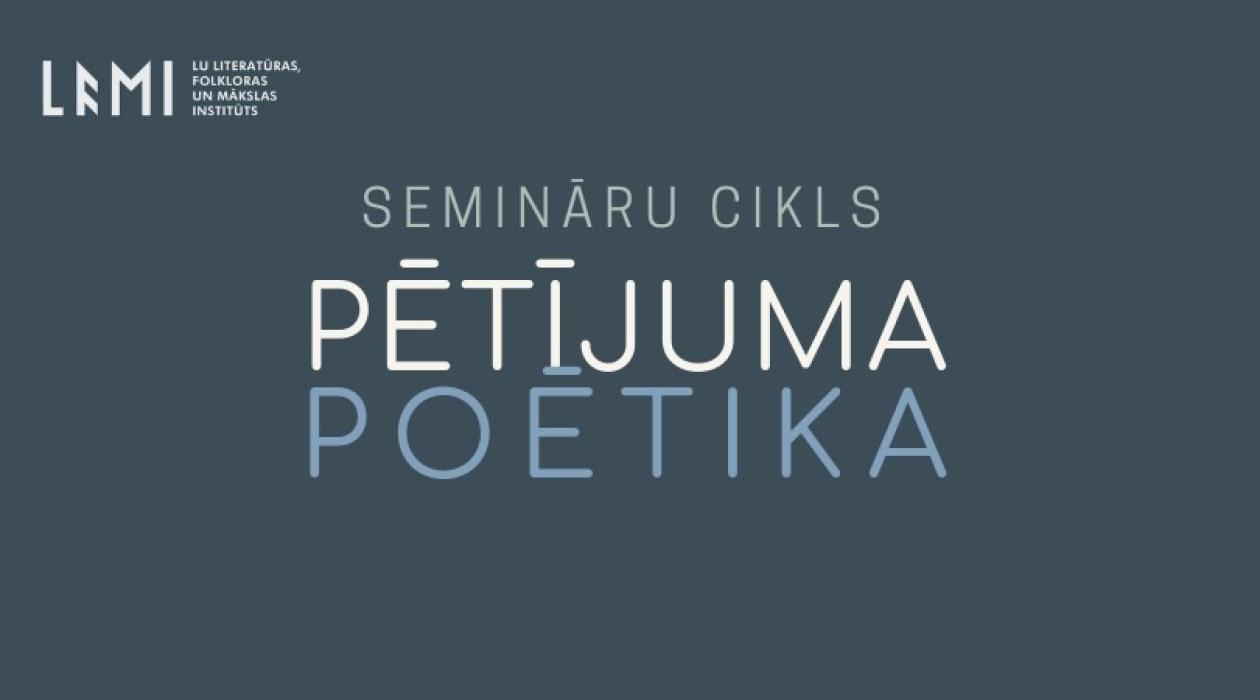The Poetics of Research on June 11

In connection with the election for senior researcher and researcher positions at the Institute of Literature, Folklore and Art of the University of Latvia (UL ILFA), we invite you to the “Poetics of Research” seminar on Wednesday, June 11, at the Reading Room of the Archives of Latvian Folklore, UL ILFA.
At 15:00, Jānis Ozoliņš will present:
“Ethnographic Camp and Queer Sensibility in Gunārs Piesis’s Feature Film Blow, Little Wind!”
At 16:00, Artis Ostups will deliver a lecture:
“Multitemporality in Contemporary Latvian Prose: Theoretical and Comparative Perspectives.”
Abstracts:
Jānis Ozoliņš — Ethnographic Camp and Queer Sensibility in Gunārs Piesis’s Feature Film "Blow, Little Wind!"
In the context of Gunārs Piesis’s 1973 film Blow, Little Wind!, an analysis of ethnographic camp offers insight into the stylistic strategies the director could employ within the constraints of the Soviet repressive system. A comparable precedent in Soviet cinema is found in the works of Armenian-born director Sergei Parajanov—particularly Shadows of Forgotten Ancestors (1965) and The Color of Pomegranates (1968). Parajanov’s example is even mentioned in the artistic council protocols at Riga Film Studio during discussions of Piesis’s script and production. Thus, parallels between Blow, Little Wind! and Shadows of Forgotten Ancestors—both of which make prominent use of ethnographic material—warrant closer examination.
The camp aesthetics in both films can be related to the queer sensibility described by Susan Sontag in her essay Notes on Camp (1964; published in book form in 1966). In these films, visual elements—texture, sensuality, a sentimental attitude toward history, and a fondness for excess—play a central role. Unlike many of the examples Sontag cites, however, the camp sensibility here is not used as queer parody. As Sontag writes, “the essential element in genuine, pure Camp is seriousness, a seriousness that fails,” and only when this seriousness includes the right mix of exaggeration, fantasy, passion, and naïveté can it be considered camp.
This lecture focuses on the characteristics of ethnographic camp in Blow, Little Wind! and how it indirectly represents the director’s queer identity. As shown by Parajanov’s case—and equally by Pier Paolo Pasolini, working on the other side of the Iron Curtain—queer identities were repressed when their representation became too legible to censors. In this way, ethnographic camp is described here as a cinematic aesthetic that enabled Soviet directors to express a hidden sensibility tied to their precarious and punishable sexual identities. Analyzing the films of Piesis and his contemporaries allows for a broader development of Sontag’s ideas about camp in mid-20th-century Europe on both sides of the Iron Curtain.
Artis Ostups — Multitemporality in Contemporary Latvian Prose: Theoretical and Comparative Perspectives
Philosophers of history and memory studies scholars agree: since the collapse of communism, the experience of time in Western societies has undergone significant change. With increasing focus on the traumatic events of the 20th century and their lingering influence on patterns of thought, we have arrived at a moment when time is no longer perceived as linear or homogeneous. Instead, there is growing awareness that we live in a “disjointed” time, in which the present is difficult to separate from the past.
Since the early 2000s, Latvian prose has been actively engaging with historical time in ways that aim to establish ethically responsible relationships across generational experiences. These relationships are based on the belief that contemporary individuals have a duty to care for the memory of past victims and acknowledge their continued presence in culture and society.
This lecture will offer an overview of how time is conceptualized in the philosophy of history, highlight connections between these philosophical insights and the formal features of narrative in prose, and demonstrate how Latvian prose’s preoccupation with history fits into a broader European literary context—opening up new possibilities for comparative research.